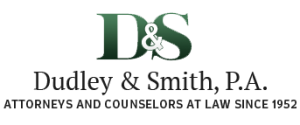
HOW DO WE KEEP THE CABIN IN THE FAMILY?
TRUST OR LLC?
A Cabin Trust Guide

Deciding what to do with the family cabin is an important issue for many in estate planning. You want to ensure your children can enjoy the cabin after your passing and that its ongoing ownership is ensured.
Simply passing the cabin to your children through a will or deed may not be ideal, especially where you have multiple children. This is also true of a transfer on death deed which transfers property to designated beneficiaries after your death. Such ownership arrangements may become cumbersome and complicated, as each child and their spouses will need to sign off on future transfers and the interests of their children may become involved. In addition, a will or deed itself does not establish rules or instructions in financing or managing the property.
1. Form a Cabin Trust or Limited Liability Company
Two options to hold ownership of the cabin are a revocable trust or a limited liability company. With ownership of the property in a trust, the trust owns the property and not your children or heirs. The property is generally protected from probate and creditors. You may also provide directions for funding and maintaining the cabin after your death.
During your lifetime you may manage the cabin as a trustee, with your children or others to serve as trustee after your death. Funds may be placed in an account owned by the trust to be used for expenses to maintain the cabin.
Ownership of the cabin in a limited liability company is a format where ownership is assigned to a group of members. The membership interests may be owned by you and other family members. Transfer of the members’ interests may be restricted, or they may be passed onto other family members as established by agreement.
Part of the documentation for either a cabin trust or limited liability company would also address day-to-day use of the cabin and maintenance and repairs. It should address issues such as scheduling use of the cabin, contributions for maintenance and repairs, rules for renting out or using the cabin, and handling disagreements among family members. In the end, written agreements help avoid or minimize disputes among family members.
2. Discuss Your Plans with Your Family
Before finalizing your estate plan, discuss your plans with your children. Open communication can prevent misunderstandings and disagreements after your death. Make sure your children understand your wishes and how the cabin will be managed. Family discussions may reveal concerns or preferences that you had not considered. Be open to feedback and be willing to adjust your plans to accommodate your family’s needs and preferences.
3. Consider Tax Implications
The value of the cabin may have tax implications for your estate. Consult with a tax advisor and estate planning attorney to understand how taxes might affect the transfer of the cabin and explore strategies to minimize tax burdens.
4. Review and Update Your Plan Regularly
Life circumstances and laws change. Regularly review and update your estate plan to reflect any changes in your family situation, financial status, or legal requirements.
Inform your family of any updates to your estate plan. Keeping everyone informed helps prevent surprises and potential conflicts.
5. Seek Professional Advice
Navigating estate planning for a family cabin can be complex. Consulting with an estate planning attorney can provide you with expert guidance tailored to your specific situation.
Dudley and Smith, P.A. has skilled and experienced estate planning attorneys with extensive experience. Joseph Dudley, Jr. and Steven C. Opheim can assist you with your cabin planning needs in Minnesota and Wisconsin. If you have questions about future planning for your family cabin, please contact Mr. Dudley or Mr. Opheim at 651-291-1717. Dudley and Smith, P.A. is a full-service law firm with offices in Blaine, Bloomington, Burnsville, Woodbury, Eagan, Eden Prairie, Roseville, Mendota Heights, and White Bear Lake.
The law is continually evolving and Dudley and Smith, P.A.’s blog posts should not be relied upon as legal advice, nor construed as a form of attorney-client relationship. Postings are for informational purposes and are not solicitations, legal advice, or tax advice. A viewer of Dudley and Smith, P.A.’s blog should not rely upon any information in the blog without seeking legal advice.
 1295 Northland Drive
1295 Northland Drive
Suite 250
Mendota Heights, MN 55120
We also have other locations around the Twin Cities.
